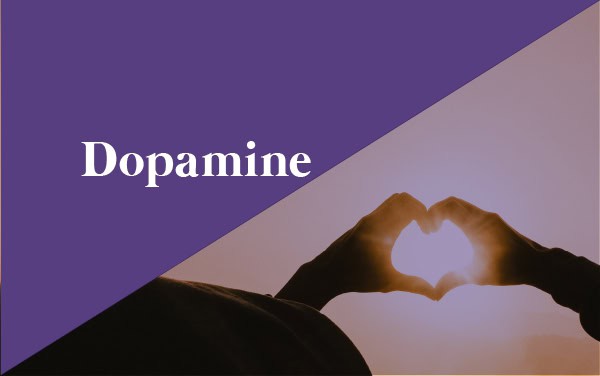Let’s talk about dopamine!
If we are to properly discuss alcohol addiction we will soon come to the molecule dopamine. Dopamine is a neurotransmitter commonly coined as the pleasure molecule, but that’s not entirely correct. Dopamine is more accurately described as the learning molecule. However, it’s definitely a combination of both. Dopamine is the molecule that has kept us alive for thousands of years. It’s the chemical that drives us to eat, to find warmth, shelter, to find a mate, and puts a smile on our faces when we high five or hug another human being.
Another neat fact about dopamine is once we take action towards a goal, we get a little blast of dopamine. The human dopamine system is like a see-saw, as a dopamine hit brings about pleasure, and then is quickly followed by pain or a lack of dopamine. What goes up, must come down. This is to keep us motivated and it worked great when we were hunters and gatherers and we had to constantly search for our basic needs – food, water, and shelter.
But, in the modern world we live in a world of abundance rather than scarcity, and our brains have not evolved for the “fire hose of dopamine” of sugar, social media, TV, sex, drugs, ALCOHOL, or any number of dopamine-triggering stimuli so easily available.
In short, it could be said that in the modern era, we are all addicts running from fix to fix, which is a reason why on average people open their smartphones around 100 times per day averaging 2,600 swipes, taps, or touches.
Many of us reached a phase in our drinking when we no longer drank to feel good, instead we drank to feel “normal”. I know there are some heads nodding right now.
This is 100% tied to dopamine.
When we drink we open the flood gates to the dopamine system, and then the dopamine system tries to reset itself by creating a deficit the next day, or next couple of days. We then are even more motivated to reach for that drink to offset the treacherous feelings of the dopamine deficit. Think merry-go-round. ?
When people do cold plunges, or ice baths, it has the same effect on the dopamine system..but backwards. You experience the pain of the cold water first, then you get a rush of feel good dopamine. Cold plungers are chasing dopamine just like alcoholics.
Countless books have been written on what addition is and its causes. Most would agree it isn’t any one thing, but many things. One reason why some are more susceptible for addiction is based on the makeup of their dopamine system. We have nearly 8 billion humans on the planet and there are 8 billion different dopamine systems. We don’t all experience pleasure and pain the same. When we put our hands in front of a fire, we don’t all feel the warmth equally
It’s quite possible that those who struggle with addiction have enhanced dopamine receptors. Does everyone have the same experience when they take their first drink? Absolutely not. But one commonality that Paul has noticed after interviewing hundreds on the Recovery Elevator podcast is that when those of us that struggle with alcohol take our first drink there’s a light show going off in our dopamine system.
On the flip side, Paul has asked many normal drinkers what their first drink was like, and the common response was eh, it was okay.
This lends truth to the idea that those with enhanced dopamine receptors are more prone to addiction.
Let’s get real. We need that dopamine hit. As human beings after all, it’s what keeps us going, it’s what keeps us alive.
So what are healthy, or healthier, ways to get that dopamine hit? What is the best form of dopamine? Or perhaps the safest?
Well here’s a couple of ideas…
Intimate connection with other human beings. “We know that when we make intimate human connections, oxytocin binds dopamine, releasing neurons in the reward pathway and dopamine is released and it feels really good.”
The opposite of addiction is connection.
Radical honesty – Dopamine is released when we are radically honest with ourselves and others. Studies show that when we are honest about who we are, what we can and can’t control, a healthy amount of dopamine is released. (To be fair, dopamine is also released when we are dishonest.)
Here’s another thing to remember with dopamine. Neurologically, neurons that fire together wire together. When we drink we reinforce dopamine pathways related to alcohol making it harder for us to release dopamine in healthier ways.
If you’re looking for more info on Dopamine, I highly recommend the book Dopamine Nation, by Anna Lembke.
***Taken from Recovery Elevator Podcast, episode 415, host Paul Churchill***



